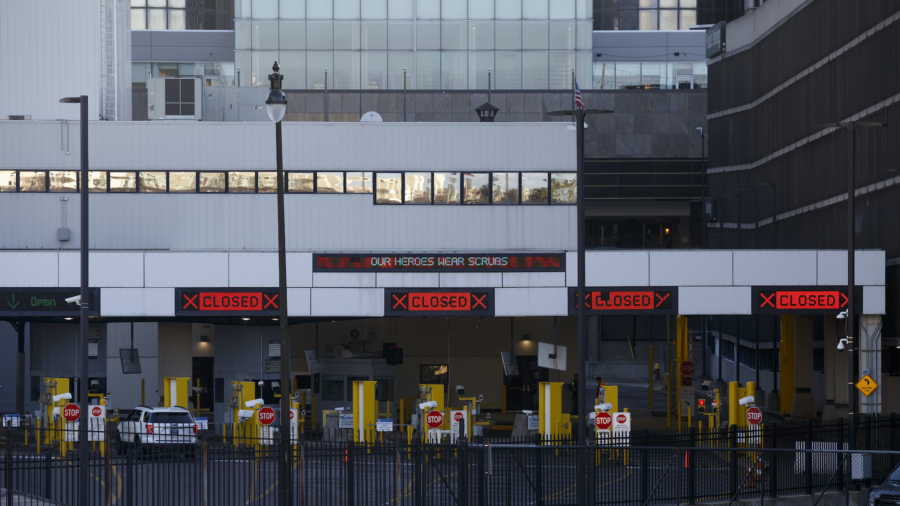The United States and Canada have reached a deal to extend the border closure between the two countries for another 30 days, said Canadian Prime Minister Justin Trudeau.
The U.S.-Canada border, which at 5,500 miles is the world’s longest, was shut on March 21 to all non-essential traffic. The agreement between the two countries to close the border amid the pandemic was due to expire this week.
“This is an important decision and one that will keep people on both sides of the border safe,” Trudeau said at his daily COVID-19 briefing Saturday, Canada’s national broadcaster CBC reported.

Leaders of both countries have taken unprecedented steps to protect their citizens as the Chinese Communist Party (CCP) virus, the novel coronavirus that causes COVID-19, has spread aggressively across the world. A Johns Hopkins tally on Saturday showed more than 2.2 million infections globally, with a death toll of 157,400.
But amid record job losses and social anguish fueled by stay-at-home directives and business shutdowns, there’s mounting pressure to deliver a solution for reopening. In the United States, frustration over lockdowns, which some states have recently extended, has sparked protests in the streets.
Canadian leaders, too, are likely to face growing pressure to ease restrictions, according to Chris Sands, director of the Canada Institute at the Woodrow Wilson International Center for Scholars.
“I don’t think any politician wants to be on the wrong side of people who are frustrated and want to get back to work,” Sands told Canada’s Global News.
“Citizens will want to work,” he said, “and businesses with supply chains that cross the border will call for coordinated re-opening.”
Charting a path for America’s return to economic normalcy, President Donald Trump on Thursday unveiled the White House plan to reopen in three phases, which lays out criteria for each stage and gives governors the final say in lifting restrictions.
Trump said Wednesday that the border between the United States and Canada would be among the first to open.
At a briefing Friday, Trudeau said that “the conversations with the Americans have been extremely aligned and extremely productive.”

But while trade and commerce traffic has been allowed to flow freely between the two countries, it would “still be many weeks” before “we can talk about relaxing the restrictions on our borders,” Trudeau said at a Thursday briefing, Agence France-Presse reported.
“We are having ongoing discussions on border issues, on supply chains with the United States all the time,” Trudeau told reporters.
We “must protect our citizens, as every country does,” Trudeau said, adding that “most countries in the world have restricted travel, and Canada and the United States are no exception.”
In normal times, nearly 200,000 people cross the U.S.-Canada border daily.
President Trump has also been communicating with Mexico about its border with the United States.
“Yesterday, President Donald J. Trump spoke by phone with President Andrés Manuel López Obrador of Mexico. The leaders expressed their appreciation for the two countries’ strong economic ties, their joint efforts to curb spread of COVID-19, and continued commitment to protecting the health and safety of Americans and Mexicans. The leaders also discussed the need to maintain restrictions on travelers crossing their land borders for non-essential purposes, while ensuring cross-border activities that are critical to commerce, health security, supply security, and other essential industries remain unimpeded. President Trump offered additional resources to the Government of Mexico to support its health care system,” according to the White House.
From The Epoch Times

